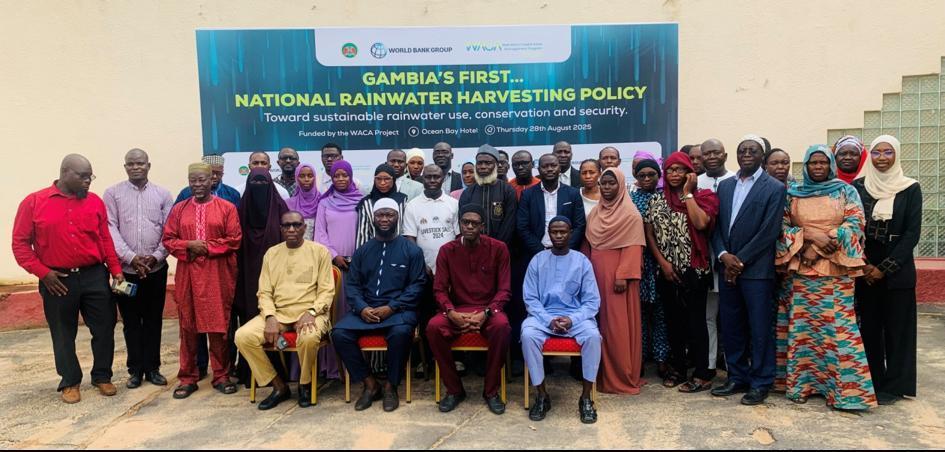Africa-Press – Gambia. The Ministry of Environment, Climate Change, and Natural Resources (MECCNAR), in collaboration with the West Africa Coastal Areas Resilience Investment Project (WACA ResIP2), has successfully validated the country’s first National Rainwater Harvesting Policy. This milestone marks a significant step towards promoting climate adaptation and building community resilience in The Gambia.
Launched at the Ocean Bay Hotel, Bakau, the policy provides a robust framework for rainwater harvesting, conservation, and management, empowering communities to adopt sustainable practices and reduce their reliance on groundwater sources.
Dr Modou Lamin Sanyang, WACA Project Director, emphasised the importance of this policy, stating that it will “enable us to significantly mitigate flooding, enhance climate resilience, and ensure sustainable water management.”
He said rainwater harvesting will help reduce the strain on groundwater sources and enhance agricultural productivity.
“The policy will empower communities to adopt and conserve rainwater, improving their resilience to climate-related shocks. It also provides clear direction and support for sustainable rainwater management practices, ensuring the long-term sustainability of water resources.”
Dr Sanyang added that the development of this policy is a testament to the collaborative efforts of the government, development partners, and stakeholders.
“This policy is a guiding principle and it highlights institutional arrangements and implementation strategies to mainstream green water harvesting across all sectors. It also aligns to the WACA efforts on flood risk mitigation.”
He said the WACA project is looking at the Kotu stream which has over 200,000 habitants.
“These people seriously suffer every rainy season due to flooding,” he said.
Abubacarr Zaidi Jallow, Deputy Permanent Secretary Technical at the Ministry of Environment, praised the Department of Water Resources for their technical guidance and the West Africa Coastal Areas Resilience Investment Project (WACA ResIP2) for their financial and technical support.
The validation of this policy marks a significant step towards a more water-secure and resilient future for The Gambia. With this policy in place, the country is better equipped to harness the potential of rainwater harvesting, reduce the impacts of climate change, and improve the livelihoods of its citizens.
For More News And Analysis About Gambia Follow Africa-Press






